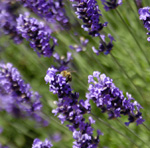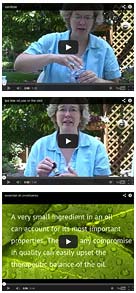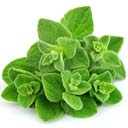
One of the biggest advantages of cleaning with essential oils is their safety and low toxicity.
Essential oils come in many different varieties, with a huge range of uses and benefits. One of the best day-to-day uses for essential oils is in cleaning and controlling bacteria in your home. There are several oils with strong antibacterial action that are ideal for killing bacteria on home surfaces and objects. Combining several of these oils together into a blend can provide more benefits than any single oil can provide by itself, as you’ll see in the recipes below.
One of the biggest advantages of cleaning with essential oils is their safety and low toxicity. Most household cleaning agents contain toxic chemicals that can weaken your immune system and kill off the good bacteria living on your skin. Many cleaning products can leave residues on floors and surfaces that you absorb into your body through your hands or feet. What’s more, most of these products are poisonous and must be kept out of reach of children.
In contrast, essential oils actually help support your immune system rather than tearing it down. And because the oils are so safe, you don’t have to worry about your children or pets touching cleaned surfaces.
Two of my favorite cleaning recipes

Lavender essential oil has natural antibacterial and relaxing qualities.
Below are two of my favorite blends for cleaning, sanitizing and controlling bacteria in my home. I use both of these recipes to help keep my home a safe haven from superbugs, as well as the seasonal cold and flu viruses. While there’s a time and place for other cleaners and disinfectants and household products, the majority of my cleaning needs are taken care with the two simple and affordable formulas below.
General cleaning blend
A great blend to use as a general cleaning solution can be made by combining rosemary, lemon, eucalyptus and lavender oils. This blend, when added to water in a spray bottle, is good for cleaning counter tops, sinks, floors, household surfaces and even for rinsing vegetables. Here’s the recipe:
- 20 drops rosemary oil
- 15 drops lemon oil
- 3 drops eucalyptus oil
- 4 drops lavender oil
Add the oils to approximately 2 cups of water in a spray bottle and shake well before using. Spray onto surfaces, let sit for a minute or so and then wipe off.
While all four of these oils have antibacterial properties, together they provide many other benefits too. The rosemary oil provides antibacterial action and the lemon oil helps freshen the air. The eucalyptus oil is an antiseptic and provides respiratory support while the lavender helps the room feel more relaxing and calming.
Controlling MRSA & Staph with essential oils: Michelle’s 4-Part eCourse

Essential oils are potent bacteria-killing agents that must be used properly for maximum safety and effectiveness. The fastest way to learn how to use the oils for cleaning and sanitizing is from an industry expert who can walk you through the steps and answer all your questions.
Michelle Moore brings you a groundbreaking four-part eCourse sharing the same oil methods from her bestselling book. In Part 3, Michelle guides you through using essential oils for home bacteria control, including cleaning methods and recipes for stubborn contaminated surfaces. Throughout the eCourse Michelle shares her unique method to deliver a strong “1 – 2 – 3 punch” to infections using essential oils topically, internally and for home bacterial control.
Registration for the eCourse is now open and it’s free. Register today by filling out the form below and clicking the green “Register Now” button:
A blend for stronger bacteria control

Oregano contains powerful chemicals which work against MRSA and Staph bacteria.
For surfaces that are more prone to bacteria, like high-touch areas around sinks and toilets or areas on concern, I like to use a stronger, more disinfecting blend of oils. This blend is ideal for localized bacteria control of highly contaminated surfaces, but it’s a bit too strong for general household uses. The blend contains oil of oregano and thyme for strong antibacterial action, lemon oil to freshen the air and clary sage to make the area feel comfortable and inviting. Here’s the recipe:
- 5 drops oregano oil
- 10 drops clary sage
- 10 drops thyme
- 20 drops lemon oil
Add the oils to about 2 cups of water in a spray bottle and shake well before using. Spray onto surfaces, let sit for a minute or so and then wipe off.
Essential oils and pets
Some pets cannot tolerate essential oils, so extra care is required if you have pets. Dogs and horses tolerate oils very well, however, cats usually do not tolerate essential oils. Some people are able to air diffuse oils around their pet birds without any problems. However, not all oils are safe for use on all animals.
Thyme oil may be toxic in some animals (so are most home disinfectants) and caution is needed when using this oil around animals. Cats cannot tolerate oils well. Cats do not metabolize oils in the same way that humans, dogs, or most other animals do. Excess accumulation of essential oils can occur in cats. This can quickly happen through internal or external application, or from continuous inhalation (including diffusion). The result can be liver or kidney damage or ever death.
If you do plan to use essential oils on your pets, it’s best to talk to an aromatherapist or veterinarian who understands the safe use of essential oils.
Purity is of utmost concern
As with any products I use in my home, the oils have to be pure and free from unnatural, toxic or carcinogenic additives and impurities, something common in many store-bought and online oils. Even for cleaning and household uses, you’ll enjoy the added benefits from using medicinal grade, high purity oils. You can contact me if you’d like to know what brand I use.

- How to disinfect, sanitize and clean when it comes to Staph and MRSA
- Tea Tree essential oil: A good choice for MRSA Staph infections?
- Antibacterial agent in soaps under FDA scrutiny
- Safe cleaning and alternatives archives




